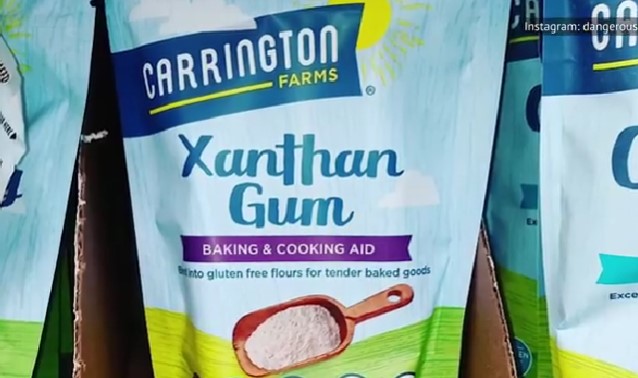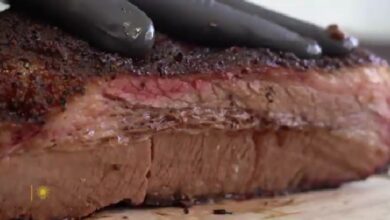Is Xanthan Gum Halal
Xanthan gum is a popular food additive known for its thickening and stabilizing properties. But for those adhering to halal dietary guidelines, the question arises: is xanthan gum halal? This article delves into the details of xanthan gum, its origins, uses, and its status concerning halal certification.
Introduction
Xanthan gum has become a staple in various industries, particularly in food production, due to its unique properties. Derived from fermented sugars, xanthan gum is used in everything from salad dressings to gluten-free baked goods. But what exactly is xanthan gum, and is it suitable for Muslim consumers? This article explores these questions, providing a comprehensive overview of xanthan gum’s origins, production, and its compatibility with halal dietary laws. We’ll also discuss its uses, benefits, and potential concerns, ensuring you have all the information you need about this ubiquitous food additive.

What is Xanthan Gum?
Xanthan gum is a polysaccharide, a type of carbohydrate, produced through the fermentation of sugars by the bacterium Xanthomonas campestris. This process results in a gel-like substance that is then dried and ground into a powder, which can be used in various applications.
Production Process
- Fermentation: The process starts with the fermentation of glucose, sucrose, or lactose by Xanthomonas campestris.
- Precipitation: The xanthan gum is then precipitated (separated) using isopropyl alcohol.
- Drying and Grinding: The resulting substance is dried and ground into a fine powder, which is the form commonly used in food products.
Is Xanthan Gum Halal?
Yes, xanthan gum is generally considered halal. The primary reason is that its production involves the fermentation of sugars, which does not involve any haram (forbidden) substances such as pork or alcohol in the final product. Although alcohol might be used in the precipitation process, it does not remain in the final product, ensuring that it adheres to halal standards.
Certification and Assurance
To ensure that xanthan gum is halal, it is advisable to check for halal certification from a reliable authority. Many manufacturers obtain such certifications to guarantee that their products meet halal requirements, providing peace of mind for Muslim consumers.
Uses of Xanthan Gum
Xanthan gum’s unique properties make it a versatile ingredient in various industries:
- Food Industry: It acts as a thickener, stabilizer, and emulsifier in products like sauces, dressings, and gluten-free baked goods.
- Cosmetics: Used to stabilize and thicken creams and lotions.
- Pharmaceuticals: Helps in the controlled release of medications.
Benefits in Gluten-Free Baking
In gluten-free baking, xanthan gum is crucial. It mimics the properties of gluten, providing elasticity and structure to baked goods, which would otherwise be dry and crumbly.
Taste and Texture
One of the reasons xanthan gum is widely used in food production is that it is tasteless and does not alter the flavor of the food it is added to. This makes it an ideal thickener and stabilizer, as it does not compete with the natural flavors of the food. However, in large quantities, it can impart a slimy texture, which is why it is used sparingly.
Where to Buy Xanthan Gum
Xanthan gum is readily available at:
- Grocery Stores: Usually found in the baking aisle or specialty food section.
- Health Food Stores: Often stocked alongside other gluten-free products.
- Online Retailers: Widely available on platforms like Amazon and other online health food retailers.
Frequently Asked Questions
Is xanthan gum suitable for a vegan diet?
Yes, xanthan gum is suitable for a vegan diet because it is produced through the fermentation of carbohydrates by the bacterium Xanthomonas campestris, making it a plant-based ingredient.
How much xanthan gum should I use in my recipes?
The amount of xanthan gum needed varies depending on the recipe. Generally, for baked goods, 1/4 teaspoon per cup of flour is recommended. For sauces and dressings, 1/8 teaspoon per cup of liquid is sufficient.
Can xanthan gum cause allergic reactions?
While rare, some individuals may experience allergic reactions to xanthan gum, including symptoms such as bloating, gas, and diarrhea. If you have a known allergy to corn, soy, or wheat, it’s best to consult with a healthcare provider before consuming xanthan gum.
Is xanthan gum safe for children?
Xanthan gum is generally considered safe for children when consumed in typical food amounts. However, excessive intake might cause digestive issues like gas and bloating.
How should xanthan gum be stored?
Xanthan gum should be stored in a cool, dry place, preferably in an airtight container to prevent moisture from affecting its quality and effectiveness.
Can xanthan gum be used as a substitute for gelatin?
Yes, xanthan gum can be used as a substitute for gelatin in many recipes. It is a plant-based alternative that works well in vegan and vegetarian dishes.
Does xanthan gum have any impact on blood sugar levels?
Xanthan gum has a minimal impact on blood sugar levels because it is not significantly absorbed by the digestive system. It is often used in diabetic-friendly recipes.
Is xanthan gum gluten-free?
Yes, xanthan gum is naturally gluten-free and is commonly used in gluten-free baking to mimic the texture and elasticity provided by gluten in traditional baked goods.
What are the side effects of consuming too much xanthan gum?
Consuming excessive amounts of xanthan gum can lead to digestive issues such as bloating, gas, and diarrhea. It’s best to use it in moderation.
Can xanthan gum be used in cold preparations?
Yes, xanthan gum is versatile and can be used to thicken and stabilize both hot and cold preparations, including cold sauces, dressings, and smoothies.
Is xanthan gum safe for pets?
Xanthan gum is generally safe for pets in small amounts. However, excessive consumption can lead to digestive upset. Always consult with a veterinarian before adding new ingredients to your pet’s diet.
How does xanthan gum compare to guar gum?
Xanthan gum and guar gum are both used as thickeners and stabilizers. Xanthan gum is more versatile and effective in small quantities, while guar gum works better in cold preparations.
Can xanthan gum be used in dairy-free recipes?
Yes, xanthan gum is dairy-free and can be used in dairy-free recipes to improve texture and consistency, making it suitable for those with lactose intolerance or dairy allergies.
Does xanthan gum affect the taste of food?
Xanthan gum does not have a noticeable taste, making it an excellent thickener and stabilizer that does not alter the flavor of the food.
Is xanthan gum environmentally friendly?
Xanthan gum is considered environmentally friendly as it is produced through fermentation, a natural process. However, the environmental impact also depends on the sourcing and production practices of the manufacturers.
Where can I buy xanthan gum?
Xanthan gum is widely available and can be purchased at most grocery stores, health food stores, and online retailers. Look for it in the baking aisle or specialty ingredient section.
Conclusion
Xanthan gum is a versatile, widely-used food additive that is considered halal. Its production from fermented sugars ensures that it does not contain any haram substances, making it suitable for Muslim consumers. Whether you are using it in gluten-free baking or as a stabilizer in sauces and dressings, xanthan gum offers numerous benefits without altering the taste of your food. Always check for halal certification to ensure the product meets your dietary requirements.
Read also:





